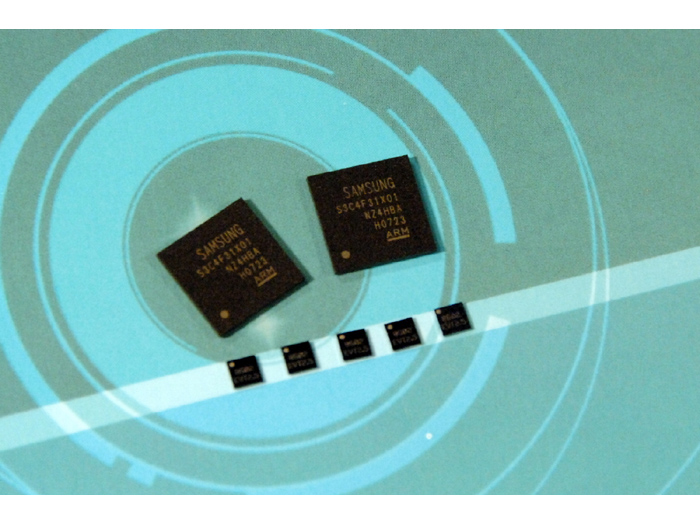Samsung brings roaming to mobile digital TV
Four standards in one package end mobile digital confusion

It's rare that we get the opportunity to praise a major electronics maker for making life a little simpler for us all, but Samsung 's latest development in digital television definitely deserves plaudits.
The Korean company announced today that it has effectively put an end to the nascent Tower of Babel that mobile digital TV currently finds itself in by developing a chipset that can decode four different broadcast standards. Oh, and Hollywood please take note - that word in the previous sentence is not pronounced "babble" just because that's what you do for a living.
UK broadcasts too
Digressions aside, Samsung's package consists of two chips that together can handle the mobile digital broadcast standards used around much of the world. When available towards the end of this year they will work with Japan's 1-seg, Korea's DMB, the DVB-H/T favoured in mainland Europe and the DAB-IP currently being test marketed by Virgin Mobile in the UK.
The chips are a tuner and decoder that combine to turn broadcasts into data a device can understand. Manufacturers of mobile digi TVs and phone handsets will be able to choose from a system-in-chip package (SiP) or two standalone circuits. Either way, the result will be smaller gadgets that use less power yet will still work in various regions.
In many parts of the world it's difficult to find a new mobile phone without a digital TV tuner, as borne out by Samsung's data, which predicts sales of 12 million mobile digital TV units this year but 130 million by 2011.
Sign up for breaking news, reviews, opinion, top tech deals, and more.
J Mark Lytle was an International Editor for TechRadar, based out of Tokyo, who now works as a Script Editor, Consultant at NHK, the Japan Broadcasting Corporation. Writer, multi-platform journalist, all-round editorial and PR consultant with many years' experience as a professional writer, their bylines include CNN, Snap Media and IDG.